The Independent's journalism is supported by our readers. When you purchase through links on our site, we may earn commission.
Westworld season 2: Everything we learned talking to the cast and crew
'I look at the second season and it does have a very different pace, a very different outlook'

Your support helps us to tell the story
From reproductive rights to climate change to Big Tech, The Independent is on the ground when the story is developing. Whether it's investigating the financials of Elon Musk's pro-Trump PAC or producing our latest documentary, 'The A Word', which shines a light on the American women fighting for reproductive rights, we know how important it is to parse out the facts from the messaging.
At such a critical moment in US history, we need reporters on the ground. Your donation allows us to keep sending journalists to speak to both sides of the story.
The Independent is trusted by Americans across the entire political spectrum. And unlike many other quality news outlets, we choose not to lock Americans out of our reporting and analysis with paywalls. We believe quality journalism should be available to everyone, paid for by those who can afford it.
Your support makes all the difference.Ahead of Westworld's season 2 return on HBO, Sky Atlantic and NOW TV on 22 April, we spent a day talking to co-creators Jonathan Nolan and Lisa Joy and key cast members about the new episodes, the political backdrop and the long-term future of the show.
Here are the most interesting answers that came out of it:
Lisa Joy and Jonathan "Jonah" Nolan (co-creators, executive producers)
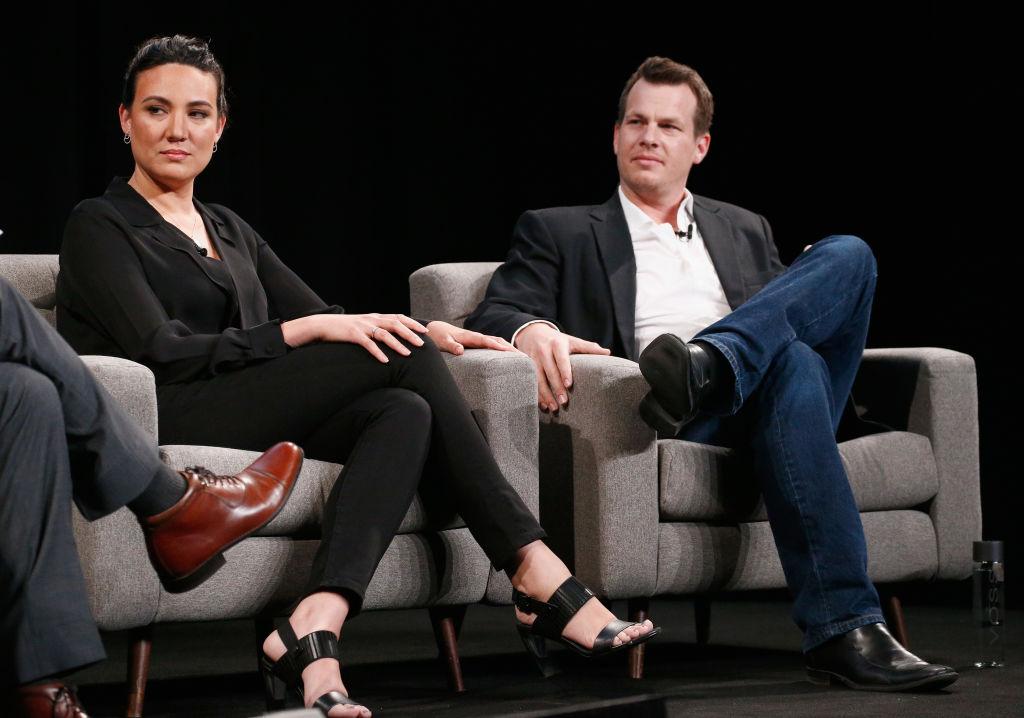
On what they wanted to do differently this season:
Jonah: "I worked on the Batman franchise for 10 years and part of the way of keeping that experience fresh for me, and hopefully for the audience, too was subtly or not so subtly shifting genres from film to film. Using the same characters but deploying different genres. For that series of films it meant international action adventure for the first one [Batman Begins], urban crime drama for the second [The Dark Knight], war film or a disaster movie, depending on how you look at it, for the third [The Dark Knight Rises].
"We took a hybrid approach with Westworld as it's TV, but tilted a little more towards the philosophy we took building a film franchise, where you'd say each season needs to answer more questions than it poses. And each one can subtly shift genre, I look at the second season and it does have a very different pace, a very different outlook, it's engaged with the same characters, asking some of the same questions and its interested in the same themes, but the method of storytelling shifts a little bit, I think. It's recognisably the same show but it has a different feeling and drive to it. And that's as much a way for ourselves to stay focused and fascinated by the material and hopefully that translates for the audience as well."
On whether there's a plan for where the story will end up:
Lisa: "Before Jonah [also her husband] and I started even writing the pilot, when it was just our little weird project, we started to map out everything. We would draw these diagrams and flow charts and put them all over our house - it literally covered the four walls, it looked insane, as though there were no windows. We wanted to have a general road map, like if you were writing a novel, we wanted to know where the novel would go before we started executing season to season. Especially because we're posing big questions and I think it would have not felt great to not have a hypothesis that we were working towards positing for the audience. It's part of the fun of this series as an intellectual exercise, so we wanted to do the work.
"But that being said, even though you have a road map, when you have actors as gifted as the ones that we have you always have to leave room for surprises, especially with character, I think, in any creative endeavour. Part of the greatest joy, and it happens all the time, is you go to set and think a scene is going to look one way and then all of a sudden there's this whole new level or intellectual resonance they can find within it, and it's learning to dance with those moments and go from there."
On Westworld's complex narratives and the link between it and the film Memento:
Jonah: "The show wasn't there to have twists and turns just for the sake of it, it had the reveals because the hosts didn't really understand where they were, who they were, when they were. We wanted to explore - and this is something I've been interested in from the very beginning with Memento - we wanted to explore storytelling that's really harnessed to the unique perspective of a protagonist who doesn't understand the world in the same way we do. We were interested in the differences between AI and human cognition, not just the similarities."
Evan Rachel Wood (Dolores Abernathy)
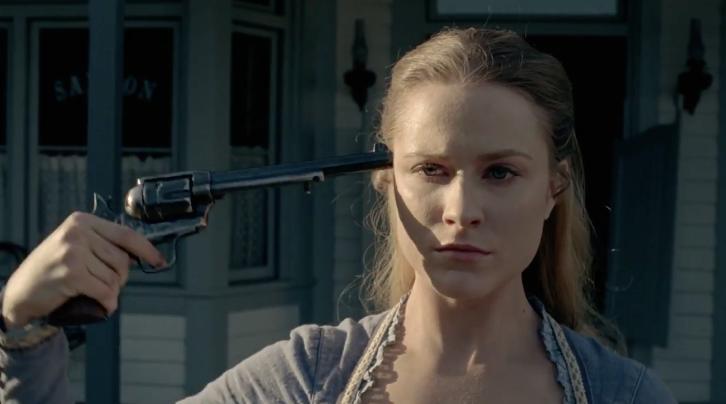
On whether Dolores is a villain in season 2:
"How we described her in the first meeting with Jonah and Lisa - they were like, 'Alright sit down we're going to talk to you about season 2' and I was like, 'Oh great, here we go! What's the deal? Who is she? Who's Wyatt? What's going on?!' and they said, 'Well, there's never been a character like this.' I thought, 'No pressure, great(!)'. Then they said, 'She's not really a hero or a villain and we've decided she's not good or bad, she's just right. And that's her dilemma and the war she's having with herself. We now know she has Delores and Wyatt in her, and Delores only sees the good and Wyatt only sees the bad. How they coexist, how she's multifaceted and how she can go kind of in and out of each one at a whim is going to be really fun to see this season I think."
On the cast trying to keep on top of the plot:
"We all pow-wow a lot. Last season we didn't really talk to each other [about the narrative], but because there is so much to digest this season we couldn't not talk to one another. There were still a few things we didn't give away to each other but we definitely compared notes a lot more because it was just harder. And I think that's what the audience wants, because part of the fun is figuring things out, so you know they're going to make it twice as hard this season! I'm excited to hear the theories because I think there's going to be quite a lot of them."
Jeffrey Wright (Bernard Lowe)
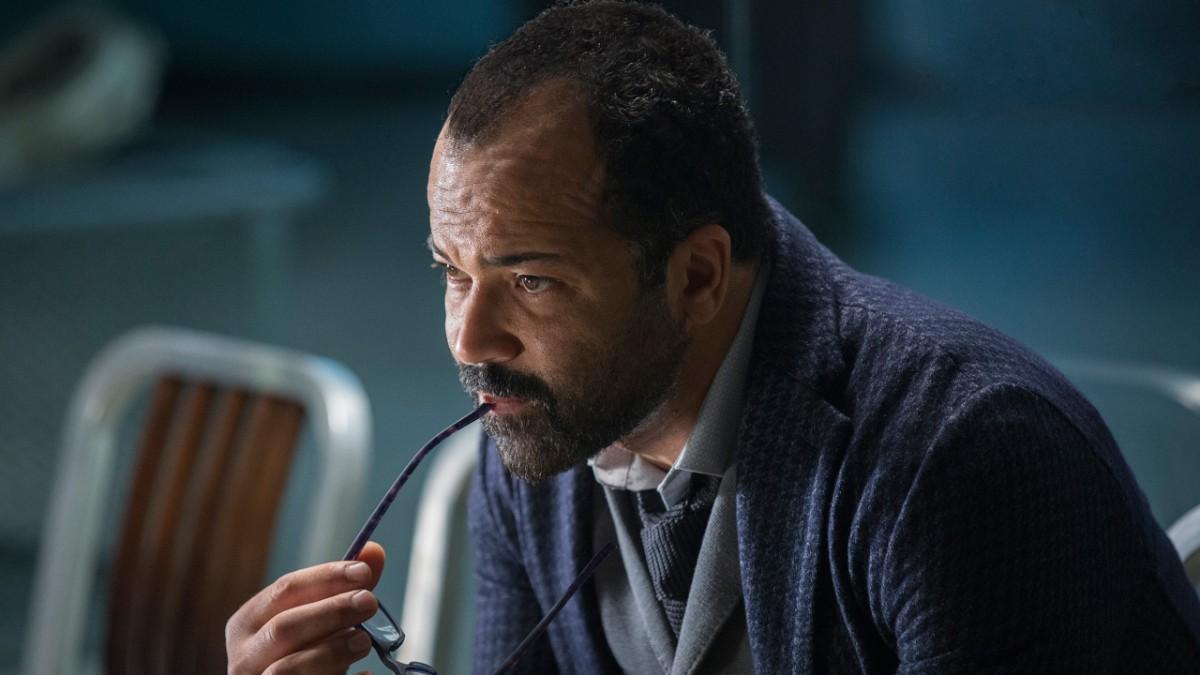
On whether the corporation in the show, Delos, makes him think of corporations in the real world:
"Not exactly, but that is a question that we explore in the second season, now that the park and the players have been established, now we begin to shift, as things fall apart, into an exploration of why, why the park.

Watch Apple TV+ free for 7 days
New subscribers only. £8.99/mo. after free trial. Plan auto-renews until cancelled

Watch Apple TV+ free for 7 days
New subscribers only. £8.99/mo. after free trial. Plan auto-renews until cancelled
On season 2 elements referenced in the season 1 pilot:
"I went back and watched the pilot simply because I wanted to go back and see where we had come from. I'd done some ADR and seen some footage and I was like, 'Wow that's really evolved,' both in terms of my relationship to the character but also the storytelling dynamic. So I went back and watched the pilot and I'm hearing and seeing things and going, 'Woah, those are windows onto season 2.' There are some very clear references to season 2 that I had not picked up on the first viewing.
"I really appreciate the architecture of the storytelling, there's a mathematical clarity to it and a deliberateness to it; everything has its purpose.
On the wildest fan theory he read:
"One of the weirdest that I took in was the notion that because the weather never changes in Westworld they must be in a biosphere underwater. I was like, 'No dude, the weather doesn't change because we shoot in LA.'"
Thandie Newton (Maeve Millay)
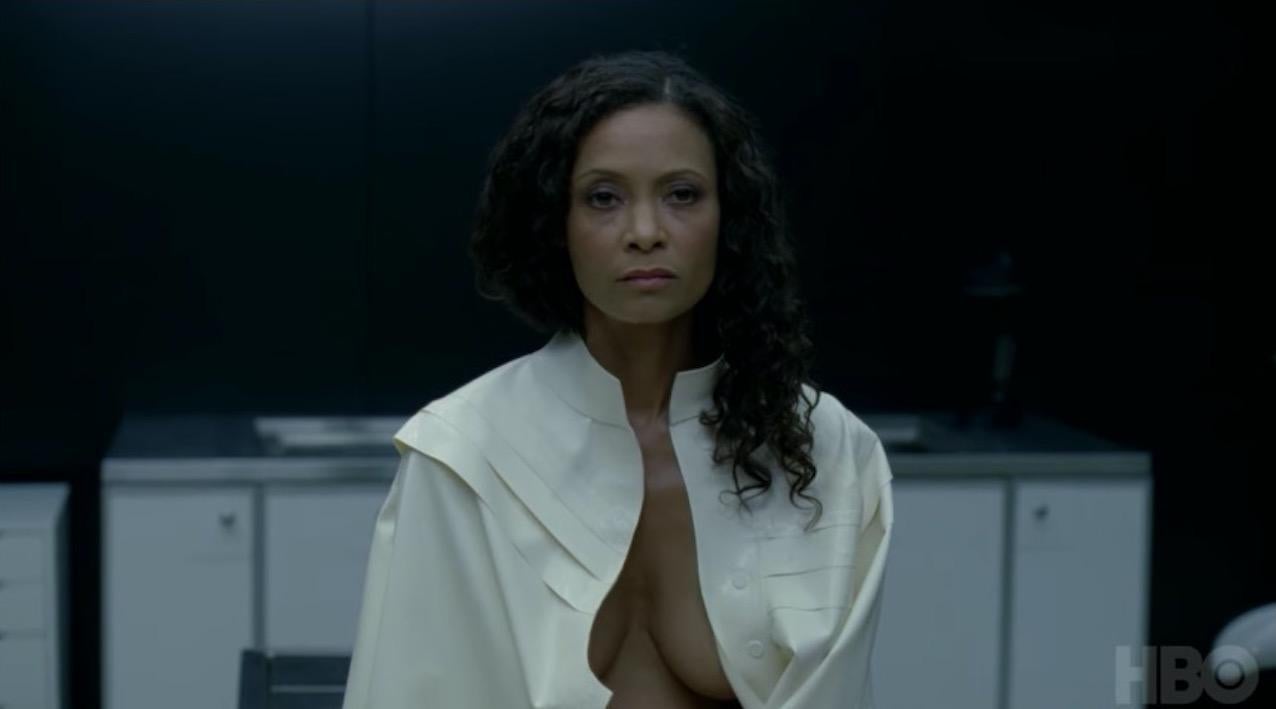
On the seasons as volumes rather than seasons:
"When all is said and done and you've got these seasons that you can stick together - if we get to do a lot, who knows - it's going to be a fascinating arc. It reminds me a little bit of Krzysztof Kieślowski, his series Dekalog and the trilogy Three Colours: Blue, Three Colours: White and Three Colours: Red. It reminds me of that. Volumes.
On whether the world is getting too fucked up for there to even be seasons 3, 4, 5 etc:
"I don't mean to be macabre but right now if I'm totally genuinely honest, if we manage to have a world where we actually make TV shows, or at least this little 25% where we can do anything other than just survive, that will be fortunate, because what's going on right now is really, really very frightening. So the idea that 'yeah, yeah we're going to be able to make six seasons', I'm like, 'Are we even going to be able to use aircraft? Are we even going to be able to continue using our gadgets? Is that all going to just break down?' We need to arrest a lot of the damage that's being created in the world right now."
Gustaf Skarsgård (new cast member, Karl Strand)
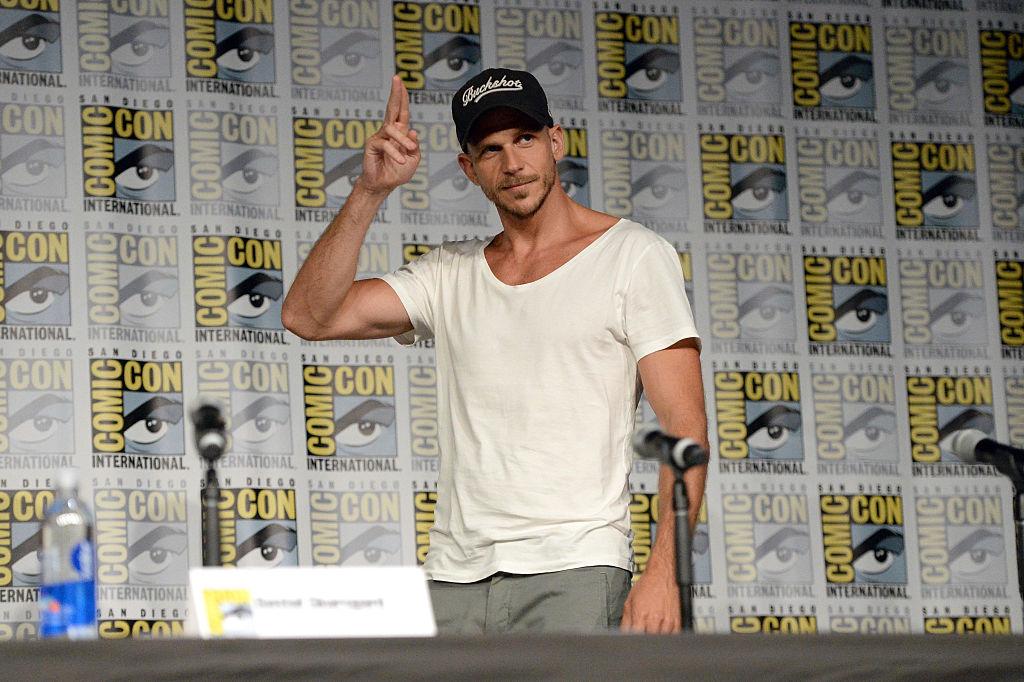
What he could tell us about his new character, who's billed as 'a white-collar guy comfortable in the field':
"My character works for the Delos corporation and he's sort of like the problem solver that you call in when shit really hits the fan. He's an ex-military guy who's the head of a private military company."
On a challenge he encountered shooting the season:
"The hardest thing I got to do was being handed a two-page monologue on the same morning of shooting. It was sort of derivative of lots of scenes that had been cut for various reasons, derived into this one speech that I got the same morning of shooting ahead of a night shoot."
On why he thinks everyone on board the show is so nice:
"Coming new onto the job I've been mind-blown by how nice everyone is. Cast and crew alike.
"My two cent theory is that people are there because they're so good at their job that they're beyond ego; they don't have anything to prove. Usually, it's the middle category that tends to have more egos or divas because they have something to prove. But here everyone is there because they're the very best at what they're doing, so there's a humility and camaraderie that is amazing, and I don't think we could survive this really hard journey if it wasn't for that."
Shannon Woodward (Elsie Hughes)
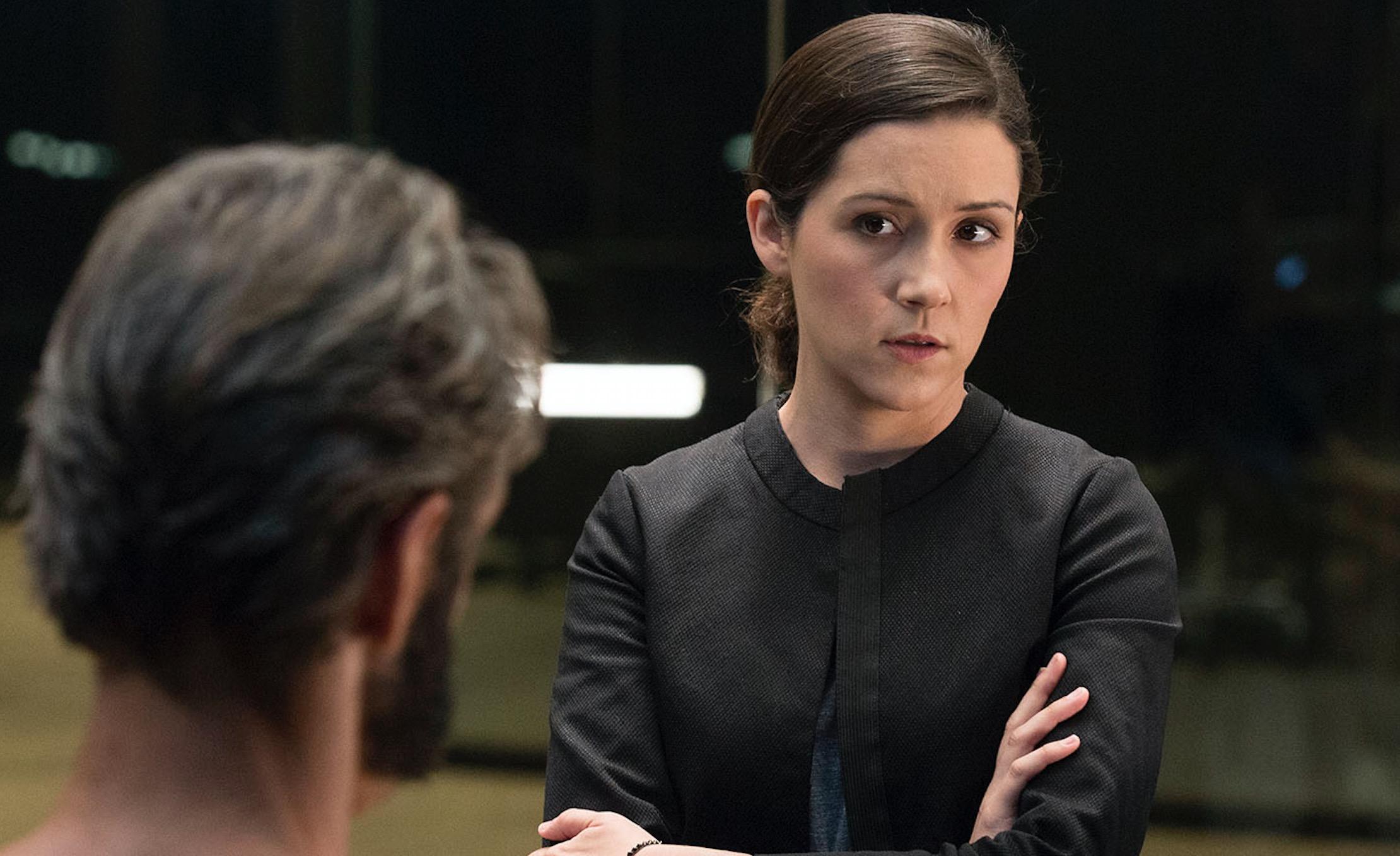
On my argument that Elsie is the protagonist, or at least a proxy for the viewer:
"Yeah, I feel that way, I think I've always felt that I kind of play Jonah and Lisa in a character, Lisa with Jonah's voice.
"It's like the audience has been inserted into the story with Elsie. There's been a lot of stuff that we've done where I've felt an incredible amount of emotion that doesn't belong in the scene suddenly, and I'll be like 'Oh right, this is what the audience is supposed to feel.'
"I think Elsie is definitely structured as a classic hero, though there are no villains in this show, everyone has their directives but I don't think anyone is set out to be one - that's part of the nature of this show, questioning the idea of narrative and how we categorise people and characters."
On the philosophical issues now facing both hosts and humans:
"What's interesting about season 2 is there's such a role reversal, the human beings no longer have the control over the park that they had before and now the hosts have this autonomy. They're discovering and essentially choosing who they want to be, while the humans are now having to grapple with the idea that they've lost control and where does that leave them, what are there alliances and where do their morals lie?
Simon Quarterman (Lee Sizemore)
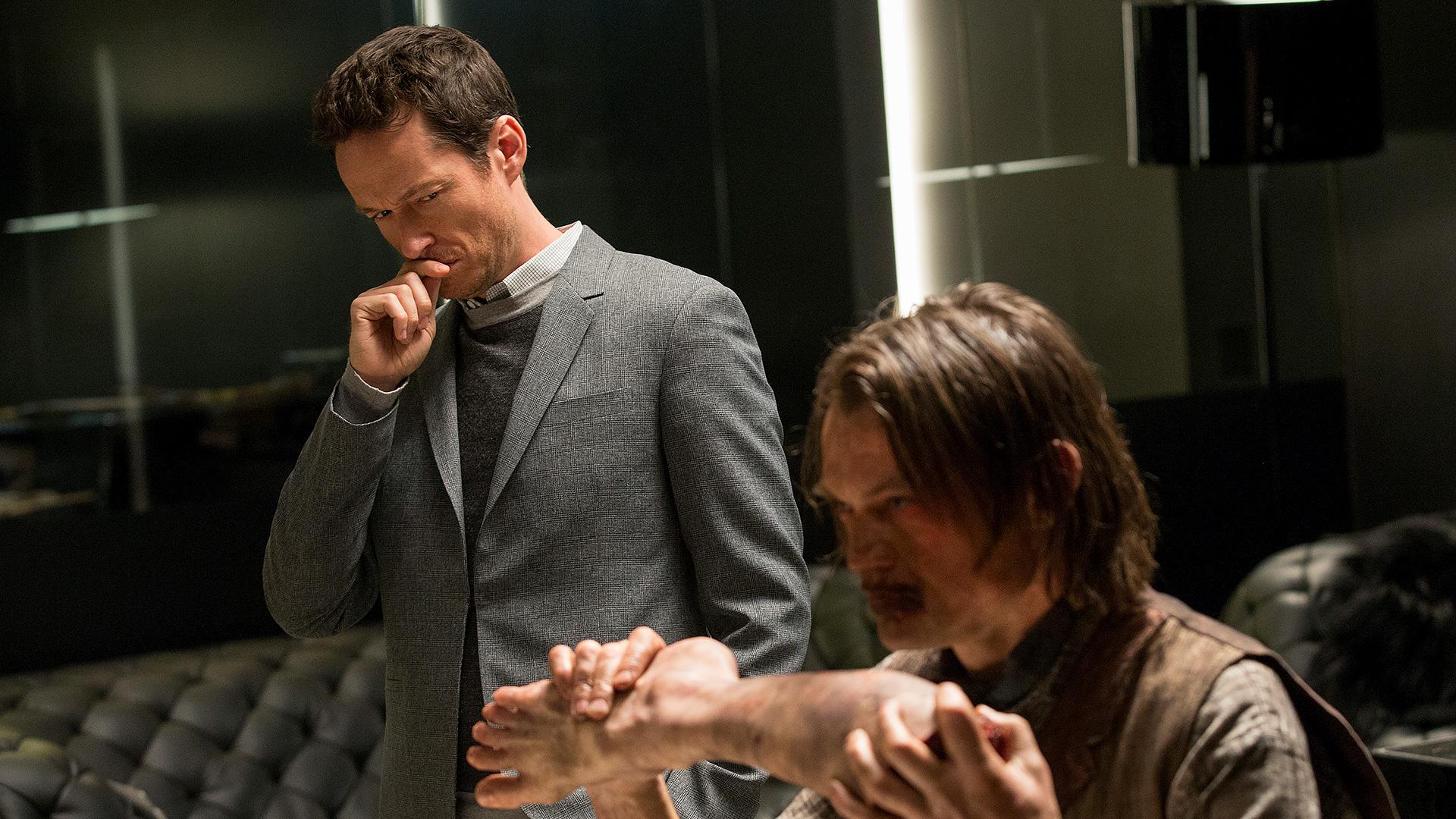
On where his character finds himself in season 2:
"Lee has been taken hostage by Maeve."
On playing essentially a screenwriter:
"I certainly noted that the [Westworld] writers had an awful lot of fun kind of dumping their neuroses and everything else about the industry into Lee, for him to deliver to the masses."
Rodrigo Santoro (Hector Escaton)
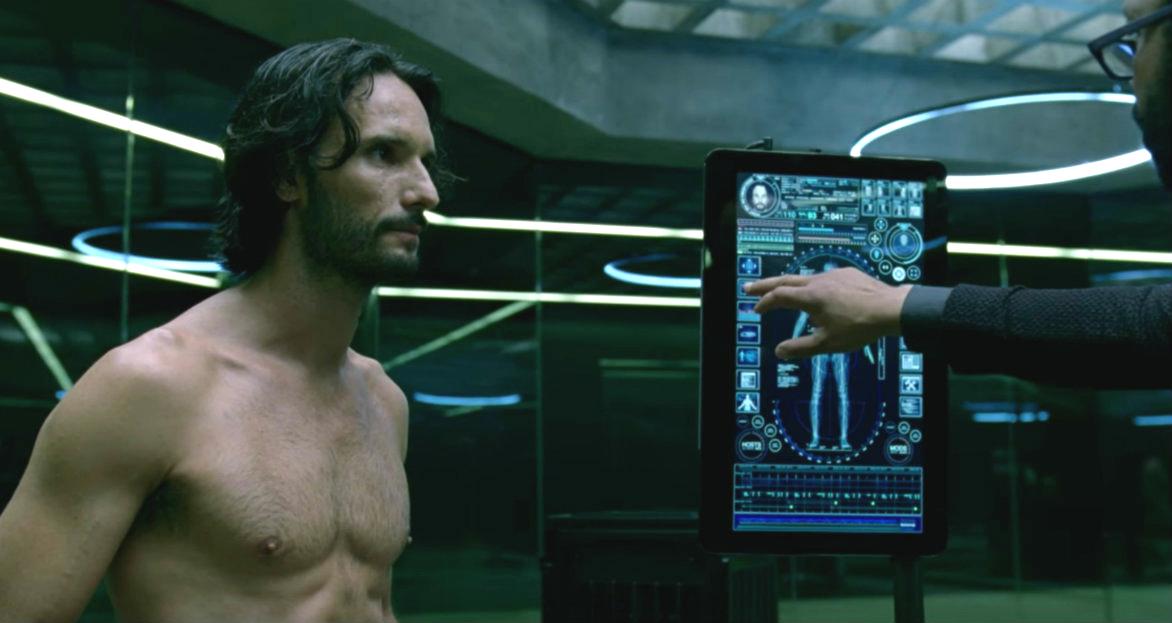
On escaping playing a robot stuck in a narrative:
"In season 1, Hector was the result of a programming, a narrative that was written for that character by a human programmer. Now in season 2, he and the other hosts are free from that narrative and beginning a journey of self-discovery and searching for their identities. This time I think I had more of an opportunity to play with different nuances that I couldn't in season 1."
James Marsden (Theodore "Teddy" Flood)
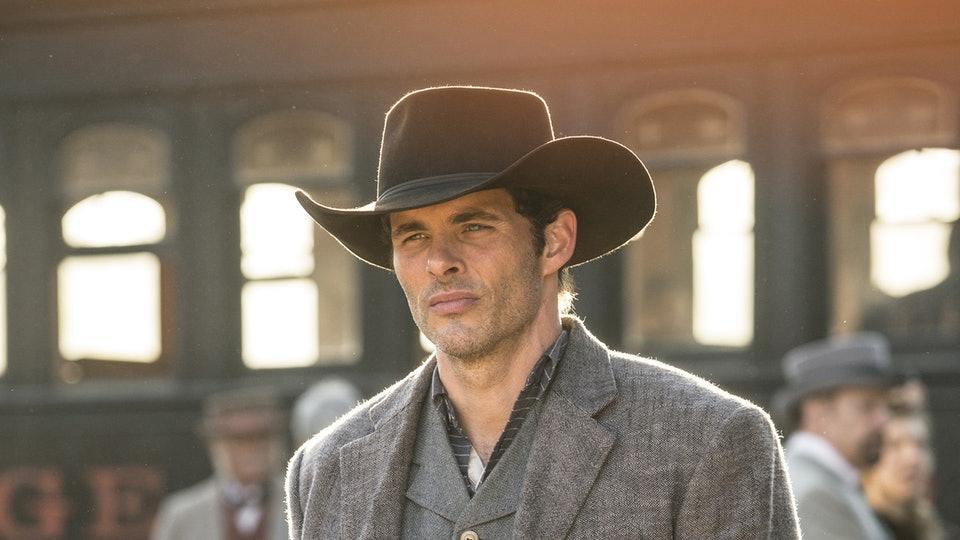
On the unexpected challenges of playing a one-dimensional cowboy character in the park:
"You do have to sort of dumb yourself down, but also tune certain frequencies out. The telltale sign to a human if they were to come into the park is how the hosts would respond to you if you bring in real-world stuff, because they're programmed not to hear or understand certain things. So if I was taking a guest out on a let's-go-find-the-bandits-type mission and he started talking about Starbucks, my programming would be to go 'Well, that sounds real nice', and not go 'what's Starbucks? What's the Golden Gate Bridge?' That would be the telltale 'Oh, it's a host'. Technically sometimes it's tricky, especially when filming the scenes where the host is in diagnostics."
Westworld Season 2 premieres Monday 23rd April exclusively on Sky Atlantic and streaming service NOW TV at 2am, repeated at 9pm on the same day.
Join our commenting forum
Join thought-provoking conversations, follow other Independent readers and see their replies
Comments